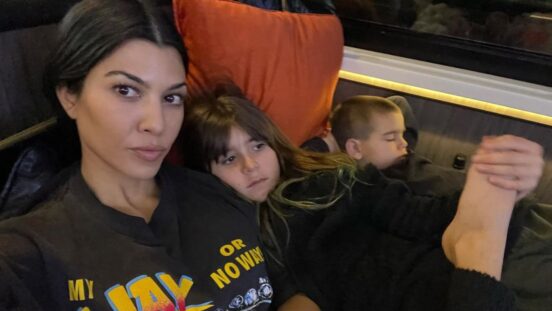How to mindfully communicate with your children during what seems like a never-ending bad news cycle

Here’s how to talk with kids about what is going on in the world right now …
By Dr Addie Wootten
For parents, it can be difficult to know how to communicate effectively with children during tough news times. It’s hard enough for adults to digest the information and facts, never mind navigating how to pass these details onto their little ones.
The following tips will help you communicate with your kids in a way that keeps them informed about what’s happening but ensures they don’t feel overwhelmed or panicked about the world around them.

1. Breathe before you react
Remember that your children observe your actions and responses and mirror your behaviour. When there’s a bad news announcement, or you’re having a discussion with a friend about a confronting topic, take a long deep breath before responding. This will prevent hasty reactions and allow you to collect your thoughts before responding. If you are calm when discussing these topics, your children are less likely to feel anxious about them.
2. Communicate the important topics
Keeping your children in the dark as a way to protect them and prevent worry will only lead to further trouble down the track.
Make sure you talk to your kids openly about what’s going on around the world – either during conversation around dinner time or in the moment when they see or hear something on the news. By being present with them when they learn about tough issues you can respond to any questions they have then and there and reassure them that adults are doing their best to help. Modelling a calm and open attitude towards world events can support children to understand that even though challenging things might be occurring, we can manage our emotional reactions.
If they are feeling helpless, talk to them about the things they can do to support the cause they’re worried about. This could be fundraising for bushfire recovery at school or planting bee friendly flowers in the garden at home to help the ecosystem.

3. Meditate with them
Communicating calmly and effectively allows children to feel safe and secure about discussing world news with you however, this isn’t easily done if you’re feeling unnerved about certain topics.
Introducing a meditation practice into yours and your child’s routine is a great way to learn how to step back from thoughts and fears and self-regulate emotions – which is all part of building the skill of mindfulness. It provides you, and them, with a greater ability to listen and communicate more thoughtfully and effectively, which is important when discussing troubling topics.
For children, this is a key skill that allows them to identify difficult emotions that may be brought on by negative news and provide them with the tools to help diffuse them. It will assist in building awareness of emotions and skills to manage them.
The Smiling Mind app is a useful tool for parents to find guided meditations and mindfulness exercises for any age group.
4. Gratitude journaling
When there’s a lot of troubling news coming through on both a national and global scale, it’s important to reflect on what we have to be grateful for.
At night, sit down with your children and ask them to write down three things they are grateful for. Repeating this regularly, either every evening or once a week, will help your kids recognise the positives around them and hopefully, feel reassured by the good in their lives.
It’s also important to note that mental health is complex and if your child is showing signs that you’re not confident in supporting, then seeking professional help is strongly recommended. Start with your GP and they will help guide you – there are many services available to support child and adolescent mental health and provide them with the tools to better communicate in times of stress and unease.




